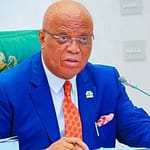Nigeria on global spotlight as country pulls off biggest UN Tourism event in Africa
In a remarkable display of organizational prowess and cultural vibrancy, Nigeria has successfully hosted the largest United Nations tourism event ever held in Africa. The event, which drew global attention from tourism experts, stakeholders, policymakers, and media from around the world, marks a significant milestone in Nigeria’s efforts to cement its position as a leading destination for international tourism.
The United Nations World Tourism Organization (UNWTO) conference, held in Lagos, brought together thousands of delegates from over 150 countries. Nigeria’s hosting of the event underscored the nation’s growing influence in the global tourism sector and showcased its rich cultural heritage, diverse landscapes, and burgeoning hospitality industry.
Showcasing Nigeria’s Tourism Potential
Nigeria’s successful hosting of the event was more than just a logistical triumph. It was an opportunity for the country to exhibit its unique attractions-ranging from the historic city of Lagos and the Benin Kingdom to the vibrant arts scene in Abuja and the breathtaking natural beauty of Yankari National Park and Obudu Mountain Resort. Delegates experienced firsthand Nigeria’s ability to provide world-class infrastructure and hospitality, dispelling outdated stereotypes and emphasizing the country’s readiness to welcome international tourists.
The conference featured a series of keynote speeches, panel discussions, and workshops focused on sustainable tourism, cultural preservation, and the economic benefits of tourism. Nigeria’s Minister of Tourism delivered a compelling keynote address highlighting the government’s commitment to supporting tourism development while protecting the environment and local cultures.

Economic and Diplomatic Impact
Hosting the largest UN tourism event in Africa has had positive ripple effects on Nigeria’s economy. With thousands of visitors attending, the hospitality, transportation, retail, and entertainment sectors received a significant boost. Moreover, the global spotlight helped attract new investments and partnerships in the tourism industry, promising long-term benefits for the country.
On the diplomatic front, the event strengthened Nigeria’s standing on the international stage, fostering collaboration between African nations and the rest of the world. It also reinvigorated discussions around Africa’s role in global tourism growth, with Nigeria positioned as a key player advocating for increased support and funding for tourism infrastructure across the continent.
A Model for Future Events
Nigeria’s success has set a high standard for future UN tourism events in Africa. The event demonstrated that with adequate planning, investment, and political will, African countries could host major international conferences and use them as platforms for growth and development.
In closing remarks, the UNWTO Secretary-General praised Nigeria’s efforts, stating that the event was “a testament to Nigeria’s resilience, creativity, and hospitality.” As the world looks toward a post-pandemic recovery for global travel, Nigeria’s achievement serves as both inspiration and a blueprint for other nations.
Conclusion
Nigeria’s hosting of the biggest UN tourism event in Africa has placed the country firmly on the global tourism map. Beyond the immediate economic benefits, it has enhanced Nigeria’s image, encouraged international collaboration, and showcased the tremendous potential of African tourism. As Nigeria continues to build on this momentum, the future looks promising for the country’s burgeoning tourism industry and its role in shaping Africa’s tourism narrative on the world stage.














